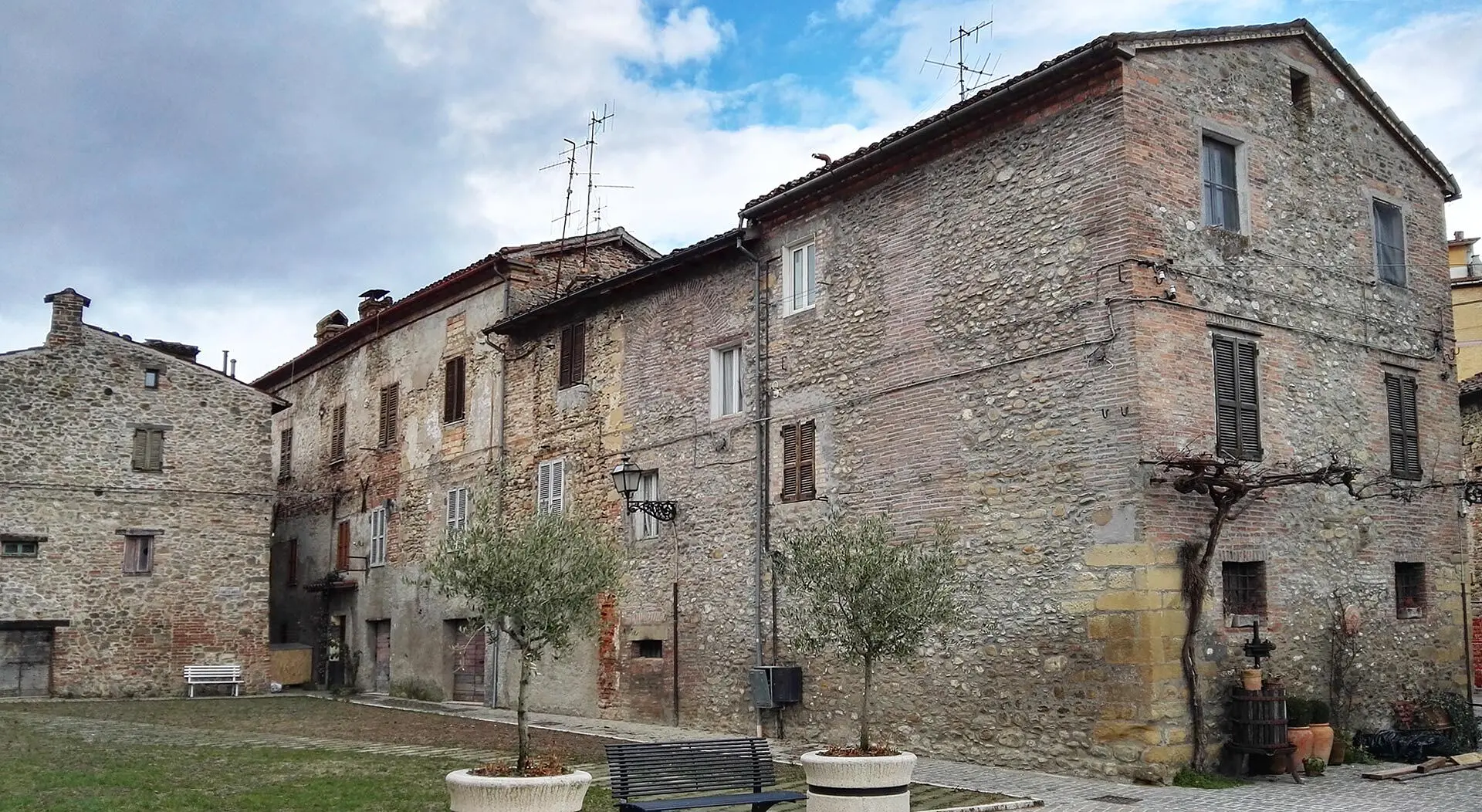SHARRYLAND


Comunanza and the "Mazzumaja"
Across the bridge over the Aso River, time has stood still.



Where is

What it is and where it is
Comunanza is a town of about 3,000 inhabitants in the province of Ascolti Piceno, in the Marche region of Italy. Surrounded by the Sibillini Mountains, it stands among wooded hills on the banks of the Aso River. Here, more than ever, the coexistence of present and tradition is evident. Leave behind Via Ascoli (the main artery of the southwest entrance to the town) and Piazza Garibaldi, where the Town Hall stands, take a side street and, after crossing the bridge over the Aso River, you will find yourself catapulted into a small world where time seems to stand still. That bridge is the only passage connecting the new part of the town (more extensive) to the old part, all huddled on the eastern side of the waterway.
Why it is special
When you arrive in St. Catherine's Square, with the imposing church of St. Catherine of Alexandria, you will be pervaded by a feeling of fairy-tale bewilderment, as the beauty of what you will see will make you forget the real world you left behind on the other side of the bridge. From the heart of the historic center several alleys unfold, two to the southeast and two more, on either side of the church, to the northwest, following the river. If you choose the latter direction you will be embraced by ancient architectural elements: old round arches, small squares surrounded by 19th-century style buildings and old cottages. Today, some areas are off-limits due to the 2016 earthquake, but not even the power of the earth has managed to eradicate thatair of peace, imbued with the scents of local products and the smell of antiquity that oozes from the stones.
Not to be missed
"Mazzumaja" is a summer festival that brings ancient local traditions back to life. Since 2008, for three days in July the new part of the town empties out and all the inhabitants flock to the old town. Here, in addition to listening to good music, you can taste typical local dishes, such as "tordo matto," which, despite its name, is a pork dish flavored with juniper berries. That's not all: old-time taverns and old craft workshops, guardians of a valuable cultural and historical heritage, are also reopening their doors. The term "mazzumaja," which in the local dialect means a group of cheerfully rowdy children, renders the spirit of the festival well.
A bit of history
Although its origins are attested as early as Roman times, the present settlement originated in the 5th-6th centuries, when some families from the city of Ascoli Piceno took refuge here to escape the constant barbarian raids. The name Comunanza first appears in 1324 in a document that mentions "Communantia Montis Passilli Civis Districtualis Esculi." The original church of St. Catherine of Egypt, listed in the ancient land register of Ascoli in 1381 as Ecclesia Sancta Catarina into Castrum, was demolished in 1818 and reopened for worship in 1831, redesigned by architect Pietro Magi. It houses a Baroque two-keyboard organ inside, unique in Europe for its antiquity, size and sonority.
Trivia
The village is given - complete with an official plaque - the title of "Longevity Country," due to the presence of many centenarians.
Enter the Map of Italy's Undiscovered Wonders and find treasures where you least expect it... Inspire, Recommend, Share...
Collections
The Map thanks:
Enter the Map of Italy's Undiscovered Wonders and find treasures where you least expect it... Inspire, Recommend, Share...
Where is

Collections

